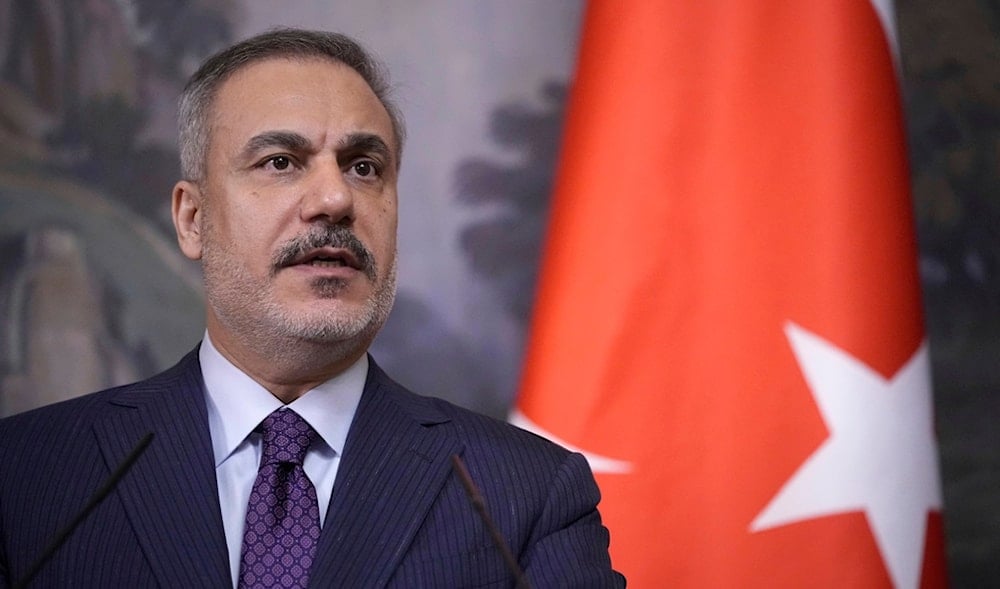Turkey conveys US position on resuming Iran nuclear talks, says Fidan
Turkish Foreign Minister Hakan Fidan says Ankara has relayed the US position on restarting indirect nuclear talks with Iran, following meetings with US and Iranian officials at BRICS and ECO summits.
-

Turkish Foreign Minister Hakan Fidan speaks during a joint news conference following a meeting with Russian Foreign Minister Sergey Lavrov in Moscow, Russia, on May 27, 2025. (AP)
Turkish Foreign Minister Hakan Fidan announced that Ankara has relayed Washington’s position on the possible revival of nuclear negotiations to Tehran, following recent diplomatic engagements on the sidelines of international summits.
Speaking to reporters on Tuesday, Fidan noted that he discussed the ceasefire process with Iranian Foreign Minister Abbas Araghchi on the sidelines of the BRICS summit in Brazil, adding that the resumption of nuclear talks would be the next phase of engagement.
He confirmed that the two foreign ministers held talks during the BRICS gathering, where regional diplomacy took center stage, emphasizing that discussions on the nuclear file are gaining importance and may soon follow the ceasefire talks.
Fidan meets Steve Witkoff
According to Fidan, he also met with Trump's special envoy, Steve Witkoff, just four days prior. During that meeting, the American side outlined its current position regarding nuclear talks with Iran.
"We managed to convey these positions to the Iranian side both at the Economic Cooperation Organization summit in Khankendi and on the sidelines of the BRICS summit," Fidan said.
Despite ongoing diplomatic engagement, Fidan acknowledged continued uncertainty surrounding both the timeline and framework of potential negotiations, noting that "there are several positions," a reflection of the complexity of resuming talks amid today’s tense geopolitical climate.
Fidan highlighted that summits such as BRICS and ECO offer critical platforms for relaying positions between parties and maintaining dialogue, especially as tensions continue to affect multilateral relations in the region.
Iran suspends IAEA cooperation post-war
On a related note, Iran halted nuclear talks with the United States when "Israel" launched its aggression on its territories on June 12. Following the war, Tehran suspended all cooperation with the International Atomic Energy Agency (IAEA) and barred its director general, Rafael Grossi, from entering Iranian nuclear facilities.
Ebrahim Amir Rasouli, political advisor to the speaker of Iran’s parliament, reiterated Iran's position on Grossi and accused him of leaking classified nuclear information to the Israeli regime, declaring that Tehran would no longer allow him to enter the country.
“Grossi has betrayed the agency’s trust by sharing sensitive data, including the names of our nuclear scientists, with the Zionist entity. Iran will not permit Grossi to set foot on its soil again,” he said.
Despite the tense rhetoric, Amir Rasouli noted that Iran still considers diplomatic negotiation an option, but any talks must take into account the outcome of what he described as a "war of aggression" and the responsibilities of the parties fueling the military escalation.
Read more: Iranian official unravels details about Op. True Promise 3 - Exclusive

 3 Min Read
3 Min Read










